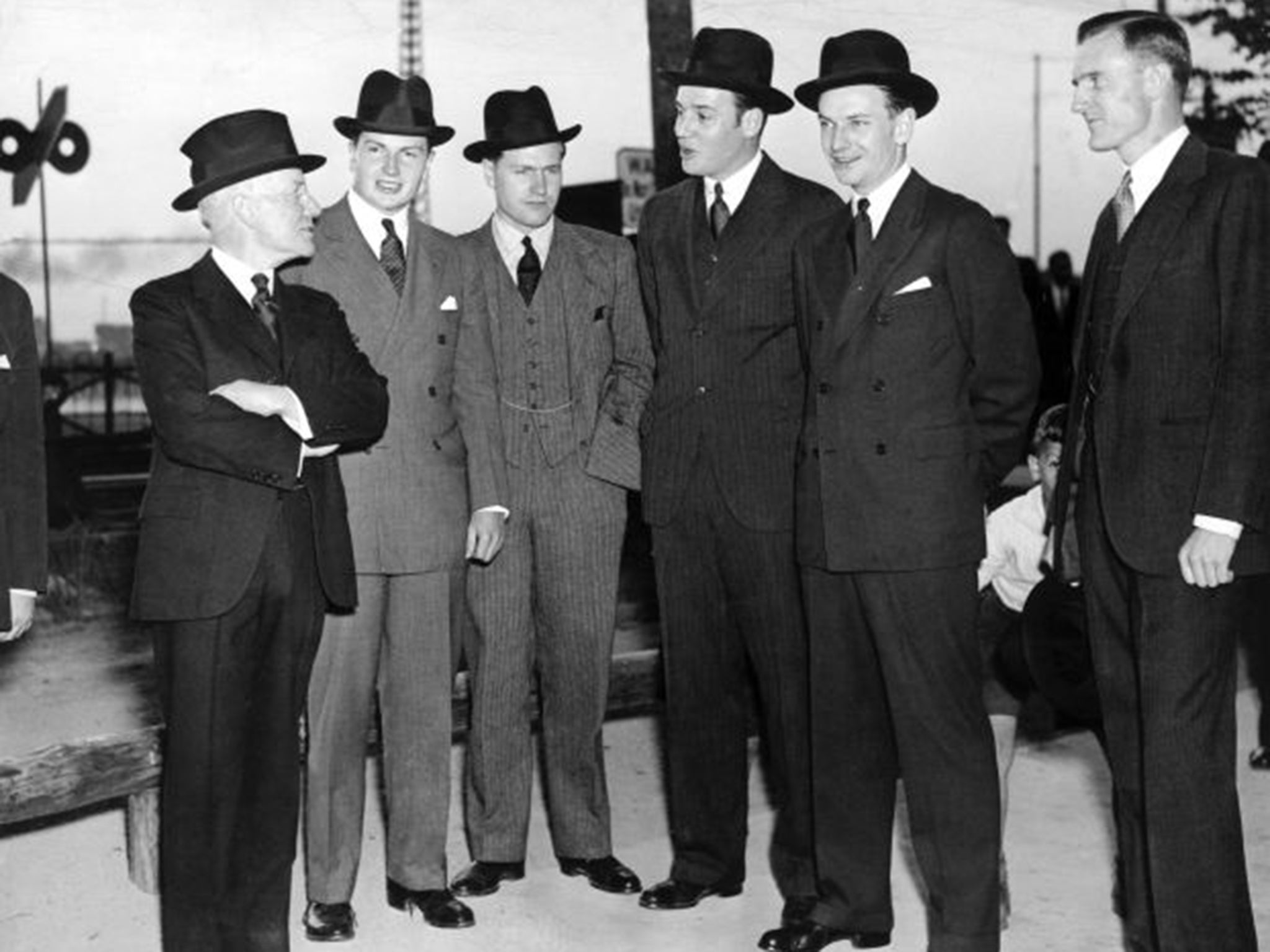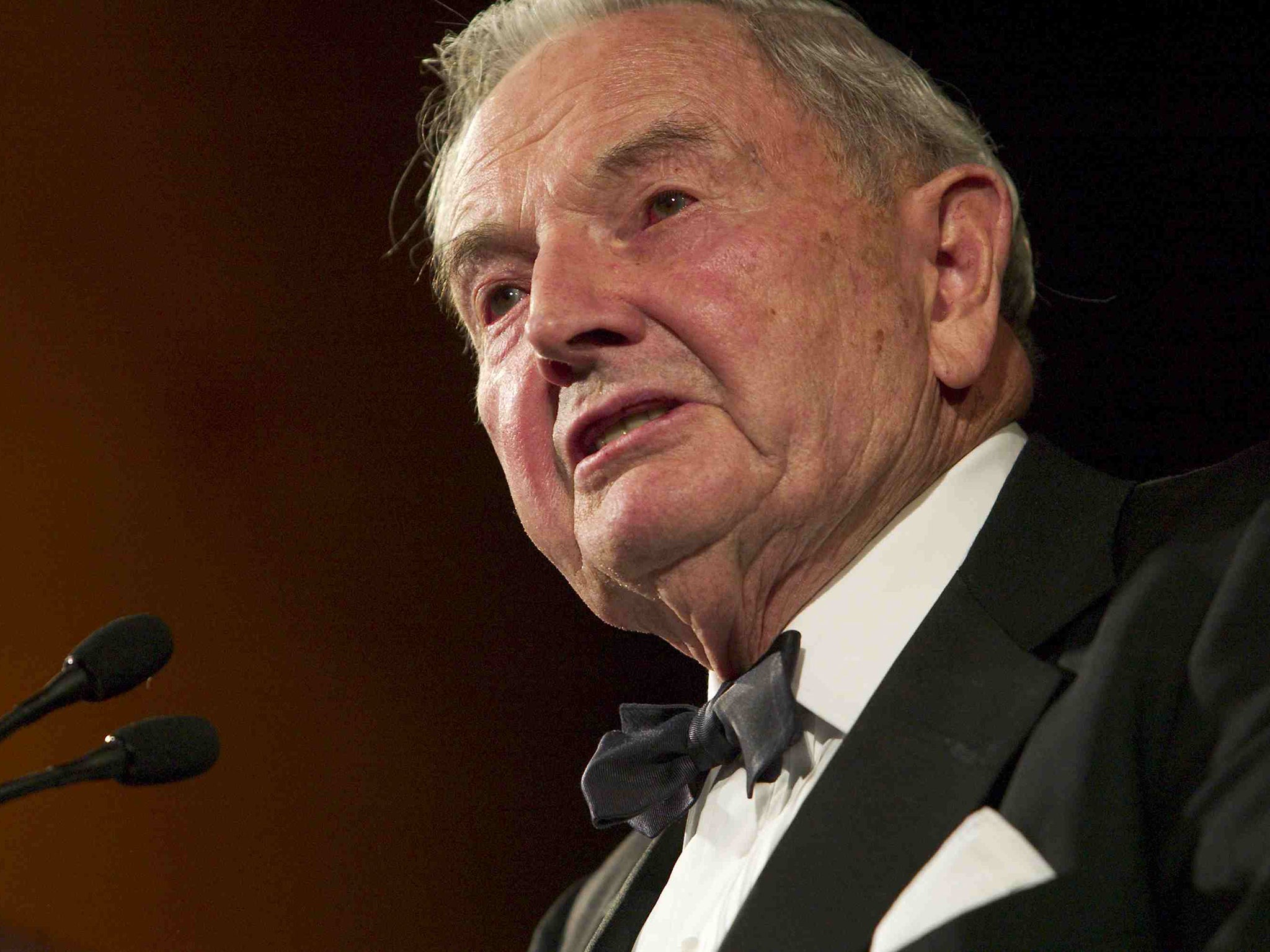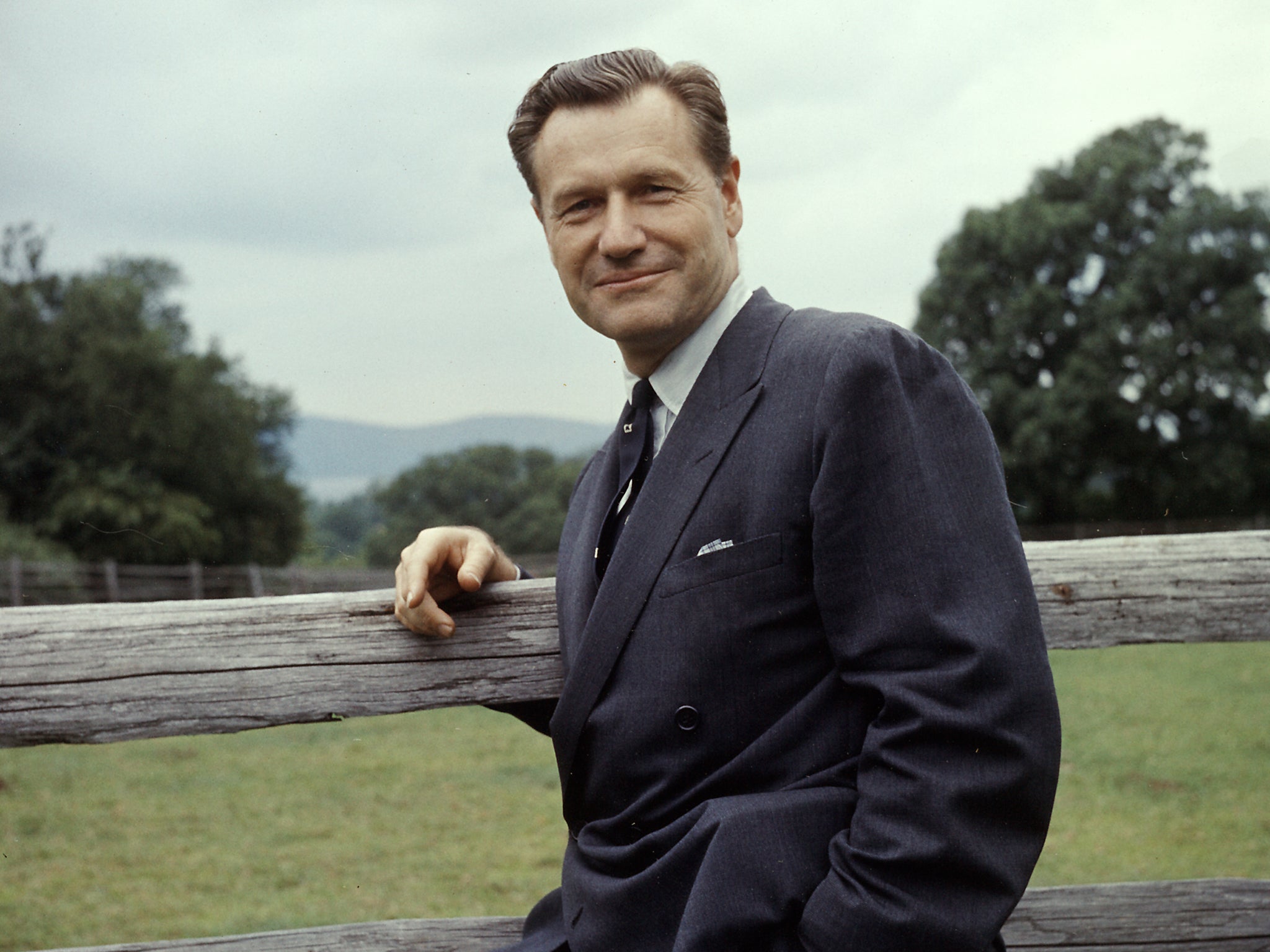Being a Rockefeller ain't what it used to be as John D's only surviving grandson turns 100
Out of America: The name retains its resonance, but the influence of America's former unofficial royal family is fading


Let’s hear it for the world’s oldest billionaire. Why, you may ask – especially when the widening gulf between the super-rich and everyone else is turning into a social and economic obscenity? Well, simply because he is David Rockefeller, owner of what still may be the most recognisable family name in America. And, 48 hours ago. David, patriarch of that family and of a vanished Wasp establishment, celebrated his 100th birthday.
These days he is pretty low in the billionaires’ pecking order: 603rd according to Forbes magazine, the chronicler of such matters, with a fortune of “only” $3.2bn. Even the family’s total wealth, much of it locked away in trusts, is put at a relatively modest $10bn – enough to buy fleets of yachts, private jets and a couple of mansions in Belgravia, but not a patch on his grandfather John D Rockefeller. When he died in 1937, “Senior”, the founder of Standard Oil and a contender for the world’s richest ever individual, was reckoned to have assets equal to 1.5 per cent of US GDP, about $250bn today. Compared with that, Carlos Slim, Bill Gates and Warren Buffett are distant also-rans.
From almost the moment of his birth, on 12 June 1915, in the embers of the Gilded Age, David was the favourite grandchild: the one, according to “Senior”, who was “most like myself”. The others of John Rockefeller Jnr’s six children are now long gone. Winthrop, a former governor of Arkansas, died in 1973. Abigail, David’s only sister, died in 1976, followed by John in 1978, and by Nelson – his most famous sibling, governor of New York and Gerald Ford’s vice-president – in 1979. Laurance Rockefeller, an airline magnate, survived until 2004. David is the last one left. And in his day, Nelson notwithstanding, he was probably the most influential of them all.

David Rockfeller flourished at the intersection of business, high finance and international diplomacy. He was never elected to any political office, but in his heyday, in the 1970s and 1980s, he seemed to know every politician who mattered on the planet.
Part of that went with the job of chairman of Chase Manhattan, which David sought to make a global bank. Part was due to merely being a Rockfeller. “Having the name can be an advantage,” he once said. “I’m more apt to get through on the telephone to somebody.” Part perhaps also reflected his much-praised work in US wartime intelligence in Europe, between 1943 and 1945.
All of this made him a networker of epic proportions (his Rolodex, in that pre-smartphone age, read like a global Who’s Who); not surprisingly the journalist and former LBJ aide Bill Moyers once called him “the unelected but indisputable chairman of the American establishment”. From the outset, too, David was a committed internationalist. To that end, in 1973 he set up the Trilateral Commission, featuring the West’s great and good, and soon found himself the butt of conspiracy theorists around the globe.
Today, there’s much hyperventilating about the secretiveness of the Bilderberg Group (another collection of worthies favoured by David). But that fuss is nothing compared with the suspicions once aroused by the Trilateral Commission. For the right, it was a cabal operating as a global government; the left saw an unaccountable rich man’s club, promoting free markets to the exclusion of all else. Senior’s favourite grandson was accused of being the plotter in chief – and he positively revelled in the charges.
“Some even believe [the Rockefellers] are part of a secret cabal working against the best interests of the United States, characterising my family and me as ‘internationalists’ conspiring with others around the world to build a more integrated global political and economic structure – one world, if you will. If that’s the charge, I stand guilty, and I’m proud of it.”
But the globetrotting chumminess had its downside. David Rockefeller, it was said, never met a dictator he disliked. More specifically, he worked with his friend Henry Kissinger to persuade President Carter to allow another friend, the deposed Shah of Iran, into the US in 1979 to be treated for cancer. The result was the Tehran embassy hostage-taking and a rupture with Iran that endures to this day.

Most fascinating perhaps is David’s relationship with the domineering Nelson. His elder sibling was tempestuous, ferociously ambitious and a compulsive womaniser. As a child, David was reserved and solitary, with an passion for collecting beetles. As an adult, he was suave and non-confrontational, a man who loathed scenes above all else. Not surprisingly, the pair grew apart, especially after Nelson’s divorce and remarriage to his mistress Happy Murphy in 1963, a scandal that may have scuppered his presidential aspirations.
Gradually, starting even before Nelson’s death, David became the family head, his image further burnished by philanthropy: over his life, he is reckoned to have given away $900m, including $79m last year alone. In 2002, he became the first Rockfeller to write an autobiography, entitled, simply, Memoirs.
Ultimately, David Rockefeller is a reminder of how even the mightiest dynasties fade. Before the Kennedys, the Rockefellers were America’s unofficial royal family. But the last Rockefeller to hold public office, David’s nephew Jay, retired last year from his Senate seat in West Virginia. The Kennedys are increasingly history, and, one day, the Bushes and Clintons will be as well. The younger Rockefellers have gone their own way. Most have to make their own living; some have even changed their names. Being a Rockefeller ain’t what it used to be.
Their political relevance, however, persists. David, like Nelson, was a “Rockefeller Republican”, a well-born moderate endowed with a deep sense of noblesse oblige. If the GOP is to recapture the White House in 2016, a dash of inclusive Rockefeller Republicanism is essential. And nothing, surely, would more delight the oldest billionaire on earth.
Join our commenting forum
Join thought-provoking conversations, follow other Independent readers and see their replies
0Comments